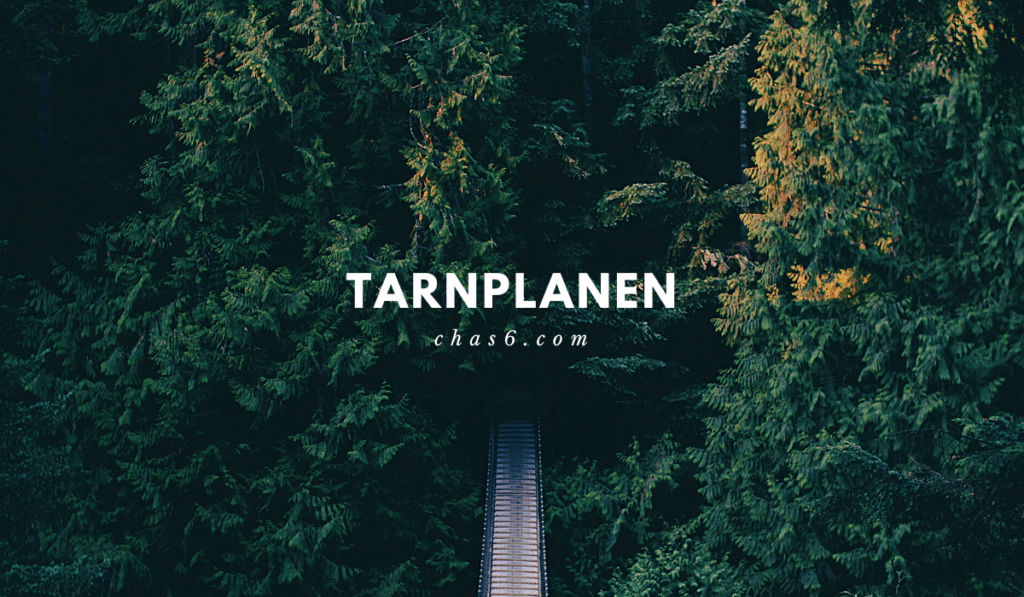Understanding Tarnplanen: What It Really Is
The term tarnplanen may sound like jargon to the uninitiated, but for seasoned survivalists, military professionals, and bushcrafters, it represents a core element of outdoor readiness. At its most basic, tarnplanen is a specialized camouflage tarp—but calling it just a tarp would be a disservice. It’s a fusion of concealment technology, survival functionality, and environmental synergy.
What distinguishes tarnplanen from typical covers or shelters is its design principle. Unlike generic tarps that prioritize coverage, tarnplanen is engineered for multi-environmental camouflage, tactical modularity, and resilience under extreme conditions. The fabric, shape, weight, and pattern are all tailored with precision to blend with surroundings while providing shelter, insulation, and versatility.
Origins of Tarnplanen: From Battlefield to Backpack
Military Genesis
The roots of tarnplanen are found in 20th-century warfare, particularly in the harsh forests of Eastern Europe and the mountainous terrains of Central Europe. Military forces needed gear that could both protect and disguise. Early camouflage sheets, often made from heavy canvas and painted by hand, were primitive yet effective.
German soldiers referred to these as Zeltbahn—multi-use canvas cloaks that doubled as rain gear, tents, and camouflage covers. Over time, as military needs evolved, these tarps were refined. Tarnplanen became lighter, quieter, and better at mimicking natural patterns under different weather and lighting conditions.
Civilian Adoption
As outdoor adventure and survival culture expanded in the late 20th and early 21st centuries, tarnplanen found new homes in hiking packs, prepping kits, and hunter cabins. Civilian versions maintained the military-grade toughness but began incorporating aesthetic designs and lighter materials for recreational use.
Tarnplanen vs. Conventional Tarps: A Tactical Comparison
To understand the true value of tarnplanen, it’s essential to see how it differs from standard tarps:
| Feature | Standard Tarp | Tarnplanen |
|---|---|---|
| Camouflage | Basic or absent | Terrain-specific, spectrum-tested |
| Material | Plastic or nylon | Ripstop polyester, polycotton, or hybrid fabrics |
| Noise Reduction | Loud in wind | Engineered for silence |
| Waterproofing | Often limited | Multi-layer, PU-coated or wax-treated |
| Modularity | Minimal | Snap buttons, loops, grommets, and modular expansion |
This side-by-side difference underscores why the tarnplanen is more than a tarp—it’s a survival system
Construction and Engineering: The Anatomy of Tarnplanen

Outer Layer
The first line of defense and concealment, the outer layer features highly detailed camouflage designed to mimic local terrain. Unlike digital prints on regular gear, tarnplanen patterns are often designed using satellite imagery, environmental studies, and even animal vision modeling.
Inner Core
Beneath the surface, you’ll often find layers of insulating mesh, reflective materials, or even low-IR signature linings. These elements are not visible but are critical in reducing thermal visibility under surveillance systems like night vision or thermal imaging.
Edge Reinforcements
Each corner and seam of a tarnplanen is reinforced with either Kevlar threading, extra canvas, or silicone-sealed edges. These areas are subjected to high tension during setup, so durability is non-negotiable.
The Strategic Role of Tarnplanen in Field Operations
Tarnplanen plays multiple strategic roles depending on context:
- Concealment Shelter: When speed is critical, soldiers or hunters can erect a shelter in minutes that also hides their heat and visual signature.
- Equipment Camouflage: Covering supplies, weapons, or tools to prevent detection.
- Observation Posts: Used to create hidden vantage points for reconnaissance.
- Improvised Stretcher: Strong enough to transport injured individuals.
Its presence in tactical gear is not about convenience—it’s about operational advantage.
Ecosystem-Specific Tarnplanen Variants
Each environment demands a unique form of camouflage. Tarnplanen are produced in several variants:
- Forest Green: Deep greens, browns, and shadow textures ideal for dense woods.
- Winter White: Grey-white, broken by branch-like patterns for snowy landscapes.
- Urban Digital: High-contrast pixels mimicking shadows, metal, and concrete.
- Desert Sand: Light beige with heat-dispersing weaves, designed for low reflectivity.
The right tarnplanen for a mission or trip depends on terrain, season, and operational goals. A mismatch could lead to visibility or heat signature exposure.
How Modern Tarnplanen Integrates with Tactical Systems
Today’s outdoor loadouts are modular, and tarnplanen has evolved to match. Integration features include:
- MOLLE Webbing Compatibility: Allows attachment to rucks, plate carriers, or belts.
- Built-in Compression Sacks: Reduces pack volume.
- Button Connectors: Combine multiple tarps for a large hide or tent.
- Infrared Dampening Tech: Embedded into fabrics to reduce detection under surveillance.
Advanced tarnplanen models can also double as ghillie base layers, allowing users to add local vegetation for even deeper camouflage.
Tarnplanen in Survivalist Culture
Among preppers, off-gridders, and minimalist campers, tarnplanen is practically sacred. It is often included in “bug-out bags” and emergency vehicle kits. Unlike tents, which are bulky and require specific terrain to pitch, tarnplanen can be used in tight forest clearings, against rock faces, or hung between abandoned structures.
Some survivalists prefer a single 3×3 meter tarnplanen over any other shelter because it offers:
- Full waterproofing
- Visual invisibility
- Quick deploy time (under 2 minutes)
- Zero dependency on poles or pegs
It’s also ideal for long-term shelter building, acting as roofing for lean-tos, insulation layering for underground shelters, or even windproof walls.
Tarnplanen as a Canvas: Cultural and Artistic Emergence
Unexpectedly, tarnplanen has also inspired a subculture of outdoor artists, musicians, and designers. At Nordic art retreats and wilderness festivals, these camo tarps are used to:
- Create temporary performance shelters
- Build camouflaged photography blinds
- Paint portable murals inspired by nature
Because of its flexible surface and aesthetic connection to wilderness, tarnplanen is seen not just as gear—but as an extension of the environment.
Maintenance: Extending the Life of Your Tarnplanen
A properly cared-for tarnplanen can last for years without losing functionality. Here’s a basic maintenance regime:
- Post-Use Clean: Rinse with freshwater; avoid detergents unless necessary.
- Dry Completely: Never store wet. Mildew can permanently ruin the camouflage and waterproof layers.
- Fold With the Grain: Maintain seam strength.
- Inspect Regularly: Repair rips using patch kits; replace damaged grommets.
Storage should be in a cool, dry space—preferably rolled, not folded, to prevent creasing.
Custom Modding Your Tarnplanen: Taking Utility Further
Many users tailor their tarnplanen to suit specific needs. Popular modifications include:
- Solar Panel Integration: Attaching flexible solar sheets for power supply.
- Velcro Strips: For quick tool attachment or signal patches.
- Bug Screens: Stitched-in mesh panels to transform it into a hammock shelter.
- Cam Clips: Add low-profile fasteners for stealthy setup.
By turning a simple tarp into a modular habitat, users push the boundaries of what tarnplanen can do.
Choosing the Right Tarnplanen: Buyer’s Checklist
To find the right tarnplanen, consider:
- Size Requirements: Solo use (2×2 m) vs. group (3×3 m+)
- Weight Tolerance: Light backpacking vs. base camp use
- Environmental Match: Forest, alpine, urban, or desert pattern
- Features: Snaps, loops, IR reduction, waterproof rating
- Brand Credibility: Look for military-tested or field-reviewed options
Try before you buy when possible. Test deployment in your local terrain to ensure fit.
The Next Generation of Tarnplanen: Adaptive and Smart
Looking forward, innovation in material science is leading to revolutionary changes in tarnplanen tech:
- Color-Adaptive Fabrics: Using micro-pigments that change based on light levels.
- Thermal Camouflage Integration: Fabrics that mimic natural thermal signatures.
- Nano-Coating Tech: Self-healing layers that repair scratches or punctures.
- Digital Camouflage Mapping: AI-driven pattern adaptation based on GPS coordinates and drone surveillance data.
These advancements suggest that the tarnplanen of the future may be more like living fabric than passive cover.
The Essence of Tarnplanen: More Than Just a Tarp
To call the tarnplanen merely a tool is to miss its broader role. It is a philosophy of preparedness, an artifact of tactical evolution, and a canvas of natural connection. Whether used by a soldier on a high-stakes mission or a camper seeking minimalist shelter in the woods, tarnplanen represents adaptability at its finest.
It’s not just about staying hidden—it’s about staying ready. In every folded corner of a tarnplanen lies a strategy, a story, and a survival mindset.
For more visit website: chas6d


